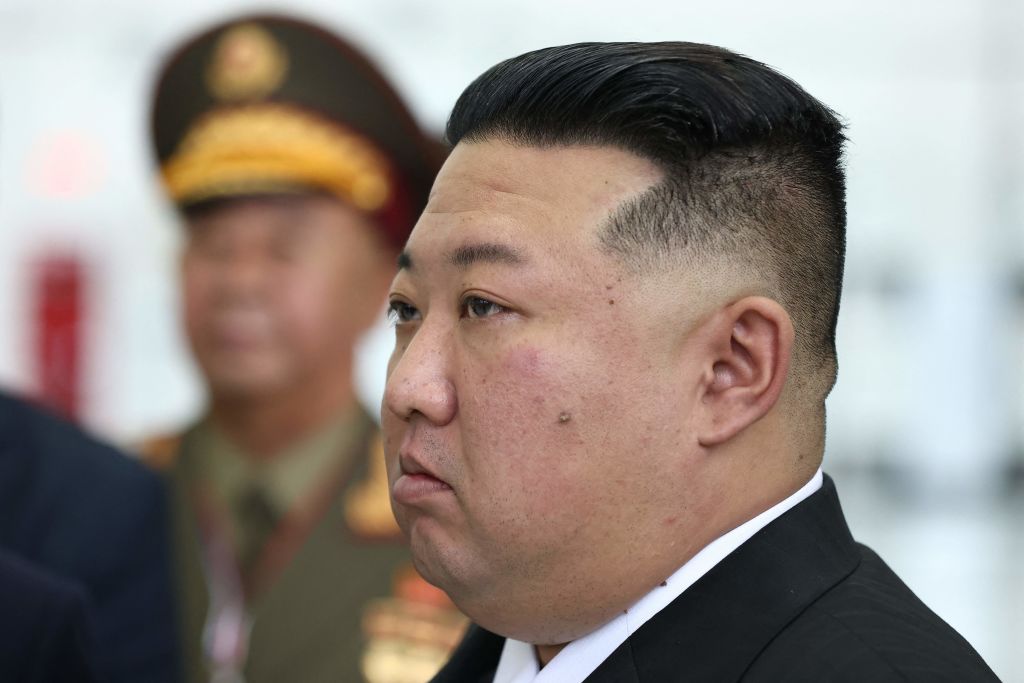South Korean voters will be among the more than four billion people going to the polls this year. With a huge potential range of outcomes, North Korea will be watching closely.
The annual new year fireworks and pop concert in Pyongyang’s Kim Il-sung Square concluded five days of high-level meetings of Kim Jong-un’s Workers’ Party of Korea. The leader’s message was severe. Kim made clear how dialogue with Washington and Pyongyang was off the table, and the North would seek to ‘crush’ what it has long-termed the ‘hostile power’ of the United States. Firmly in line with his pledge in January 2021, Kim underscored how the North would accelerate its development of conventional and unconventional weaponry, including nuclear weapons, missile delivery systems, but also satellite and drone technology. He promised to launch at least three satellites this coming year, which offer useful opportunities for the country to test missile technology, whilst, of course, being in clear violation of international sanctions.
Deeming 2023 to have been a ‘year of great transformation’, Kim stressed how one of his new year’s resolutions would be for the Democratic People’s Republic of Korea to bolster its ‘military readiness to suppress any types of provocations by the enemies’, a far from tacit reference to the United States and South Korea. These words were made even harsher by the Supreme Leader’s claim that the North would need to acquire ‘overwhelming war response capabilities’, and ready itself for the ‘realistic reality’ of war.
The past year has been marked by a noticeable rapprochement between Pyongyang and its cold war patrons of Moscow and Beijing, as shown by the meetings between Vladimir Putin and Kim Jong-un; the likely cash-for-ammunition arrangement between the two leaders; as well as China’s ongoing assistance to its northeastern neighbour in evading sanctions. In an unexpected move, New Year’s Day did see Kim Jong-un exchange greetings with Xi Jinping. Anticipating the 75th anniversary of relations between China and North Korea – following the founding of Communist China in 1949 – the two leaders declared 2024 as the ‘year of DPRK-China friendship’ and pledged to deepen ties between their respective authoritarian countries.
Whilst this year will likely see relations strengthen between Pyongyang, Beijing, and Moscow, closer to home, Kim surprisingly ruled out North Korea’s historic goal of reunification with South Korea under the North’s control. This manoeuvre underscores just how little interest the hermit kingdom has in reconciling with its southern counterpart. At a time when South Korean President, Yoon Suk-yeol, is adopting a tougher stance on its northern neighbour, Kim Jong-un has fallen back on the age-old rhetoric of decrying the South as little more than a ‘colonial subordinate’ and ‘puppet state’ of America. With reunification off the North’s short-term agenda – at least in name – we can expect such rhetoric to continue.
We should not expect North Korea to undergo a volte face any time soon
Though the situation looks bleak, hope might not be lost. This February marks five years since the infamous Hanoi summit, when Donald Trump and Kim Jong-un failed to reach a deal. If the not-impossible prospect of a second Trump administration becomes a reality in November, Kim may be willing to give the entrepreneur a second chance. A Trump administration might lead to the North Korean leader testing the waters once again, even though denuclearisation is firmly off the negotiating table. With the North’s economy in decline, securing sanctions relief might become an ever-important priority for North Korea: nuclear weapons, satellites, and drones do not come cheap.
That said, we should not be naïve. The conservative Yoon administration in Seoul has struggled with low approval ratings. What is more, given the People Power party’s lack of majority in the National Assembly, the sharp-tongued South Korean President has hitherto failed to make headway in addressing the North Korean nuclear and human rights issues. Even if April’s National Assembly elections do swing in favour of the ruling party, however, Yoon’s desire to engage with Kim Jong-un – unlike his liberal predecessor, Moon Jae-in – will be minimal. As such, if Trump does seek to master the art of a deal with North Korea once again, there will most certainly be resistance from Seoul, as well as the possibility that North Korea simply does not want to talk.
For now, we wait, but we should not expect North Korea to undergo a volte face any time soon. This is a country which, since its inception, has benefitted from behaving badly in international relations. So, according to Pyongyang’s playbook, why should it stop now?






Comments